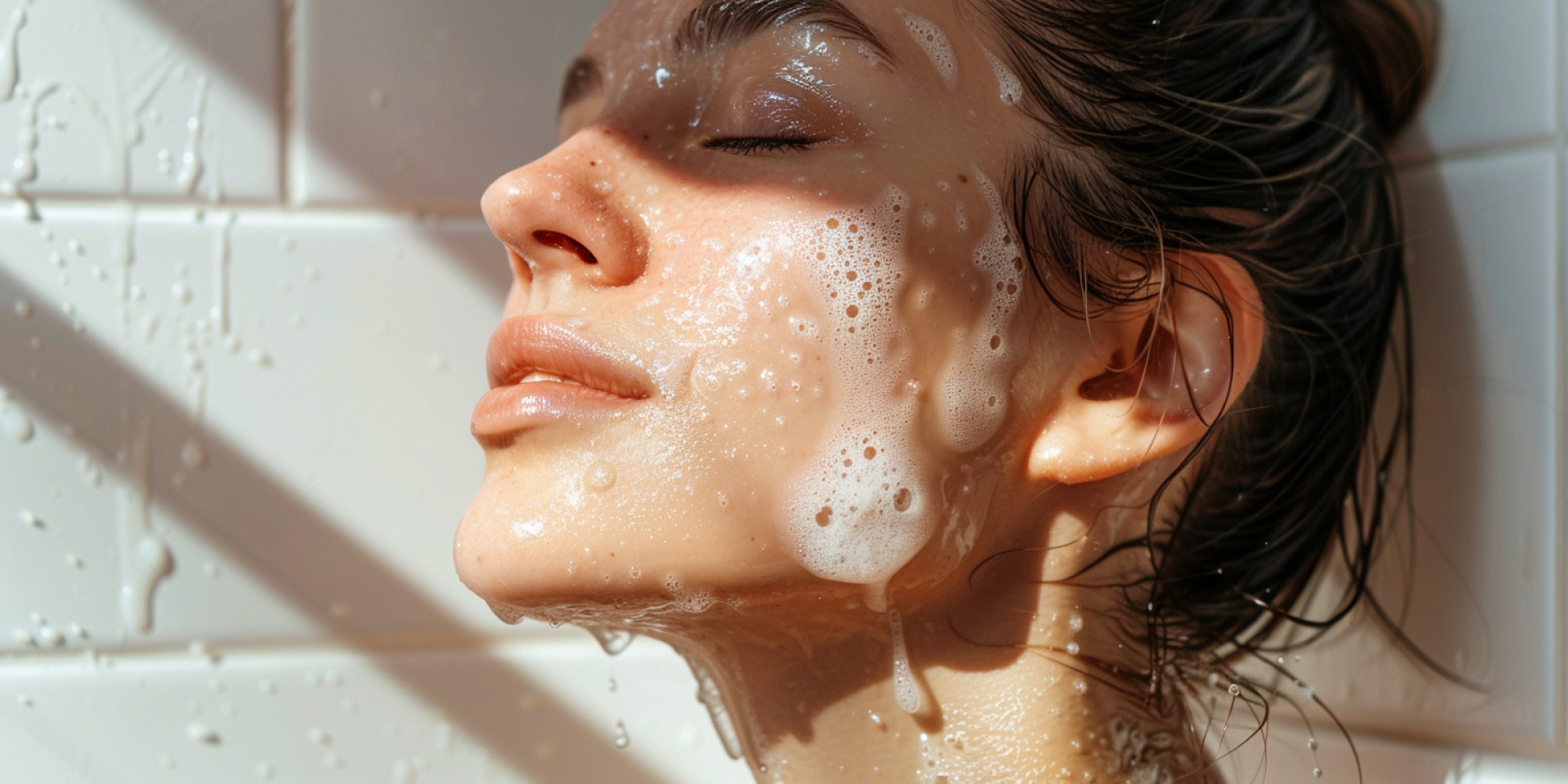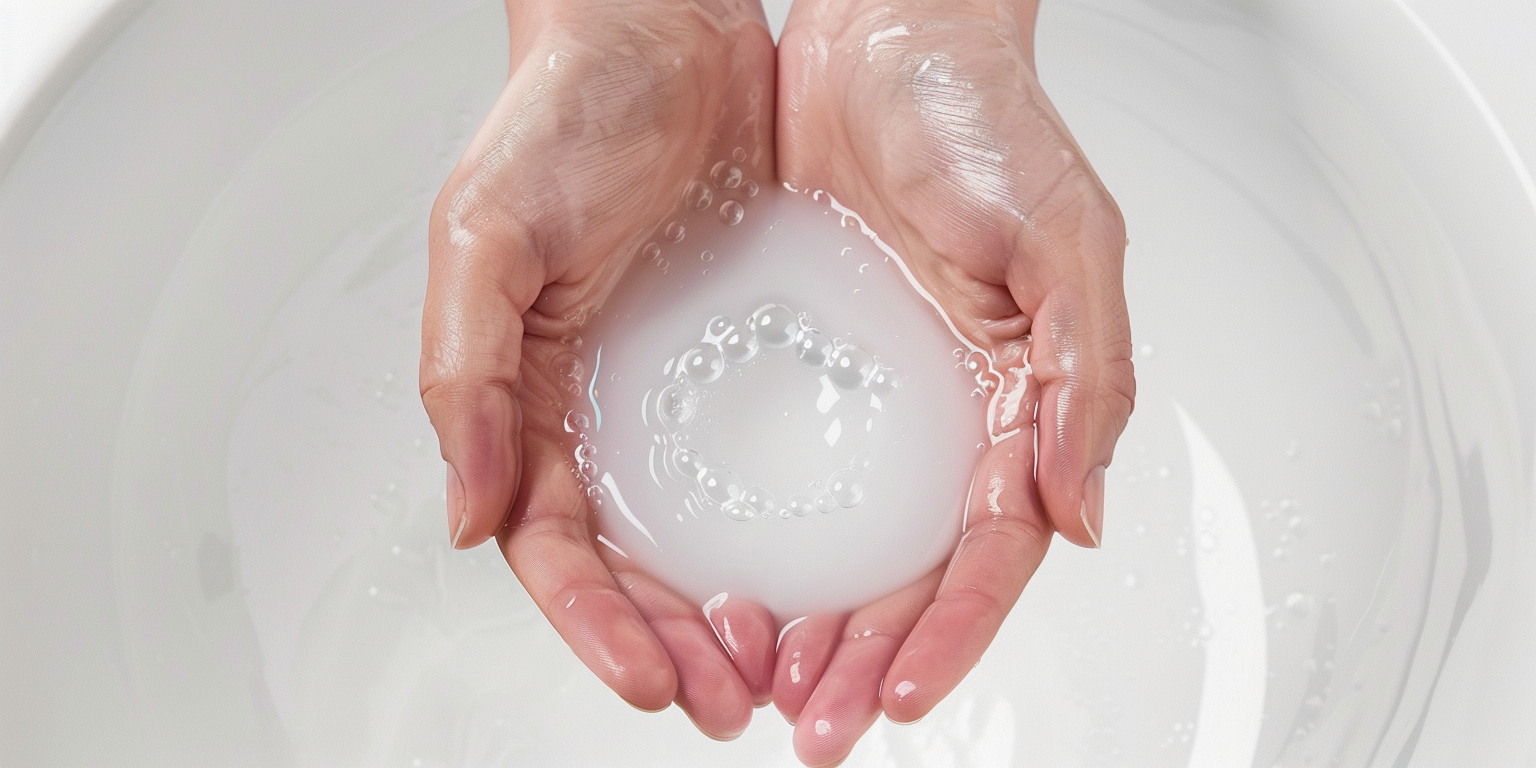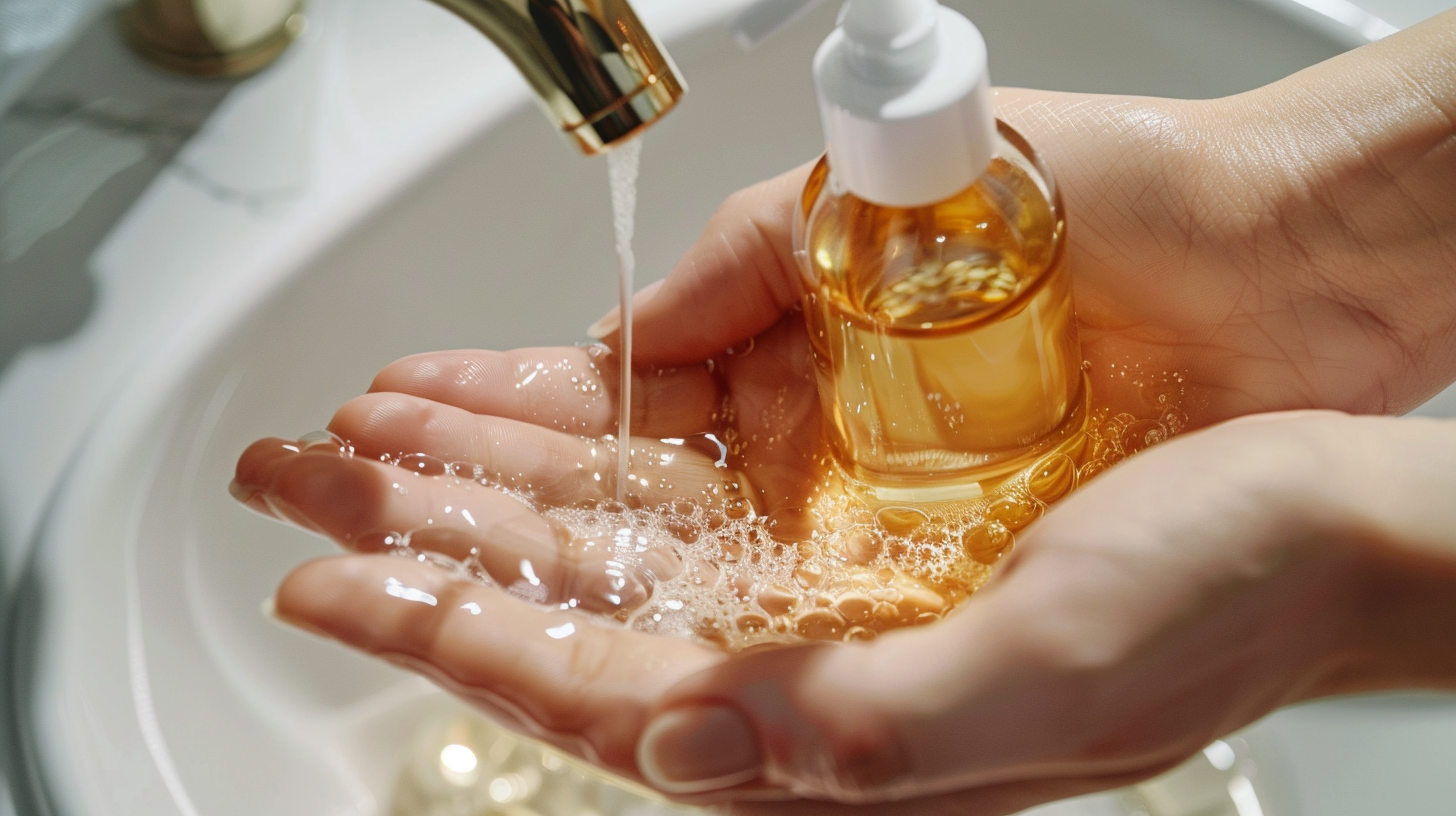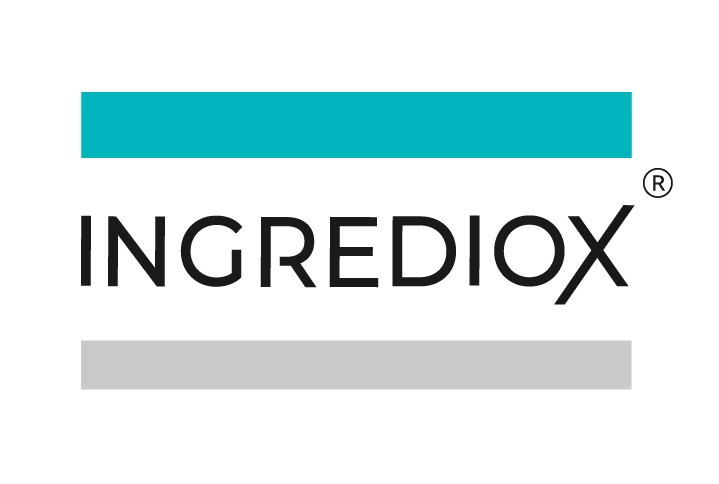Is your facial cleanser right for you?

Cleansing is probably the most important step in your daily skincare routine, and should always be very meticulous when it comes to choosing the right cleanser for your skin type. Using the right cleanser for your skin type will not only wash off dirt, bacteria, pollution, and make-up residue properly, but it also makes your skin ready for your other skincare products that follow to penetrate very effectively. A good cleanser should make your skin feel clean, not irritated, and should not leave your skin feeling tight or dry after rinsing.
What cleanser is right for me?
The number one rule to think about when choosing your facial cleanser is your skin type and your particular skin concerns, and then choose active ingredients and cleanser texture accordingly.
If you have oily and acne-prone skin types, using gel cleansers with active ingredients like Salicylic Acid (BHA) is ideal as it is able to exfoliate dead skin, clear breakouts, control excess oil production, and minimize pores.
If you have dry and sensitive skin types, Lactic Acid (AHA) is great for you due to its ability to rebalance, turnover cells, and brighten skin complexion.
If you have dull, pigmentated, and sun-damaged skin concerns, look for ingredients like Glycolic Acid (AHA) and Azelaic Acid in cleansers.
If your skin is dry and dehydrated, Hyaluronic Acid, Sodium PCA, and Glycerin are what to look for as they are able to rehydrate the skin's surface.
If you have dry, sensitive, rosacea, and eczema-prone skin types, Poly Hydroxy Acids (PHA) is right for you.
How to choose texture of cleansers?
In addition to ingredients, cleanser textures should also be chosen according to your skin types. There is an abundance of textures for you to choose, and there is no one dominant winner.

Gel Cleanser
A gel cleanser is typically the best bet for large-pored and oily skin. Its very effective in removing acne-causing bacteria, refining large pores, and eliminating excess oil from the face. A good gel cleanser should contain an acne-treating ingredient like Salicylic Acid (BHA) due to its ability to gently exfoliate and unclog pores. Niacinamide and Zinc PCA are also amicable combination with Salicylic Acid as they intensify the power of acne-treating and oil control functions of the cleansers.
Gel cleansers are water-based and consist of mild surfactants and ingredients. The biggest benefit of gel cleansers is that they can clean skin very effectively without stripping skin natural balance. Most Gel cleansers have mild pHs ranging between 4.5 and 6, which are close to natural skin levels; therefore, they are less likely to disturb pH balance and irritate skin like foaming cleansers do.
While you may feel you arent getting a deep cleanse with gel cleansers because they dont lather like foam cleansers, gel cleansers are actually designed for deep cleansing. Most gel cleansers dont produce much soap bubbles and may make your skin feel slippery after rinsing. These may be some of the cons for using gel cleansers. However, with advance technology, there are some gel-like cleansers that solve those unwanted feelings. Such products can produce a lot of lather and dont leave slippery feeling on your skin like most gel cleansers do, while still preserving the cleansing ability without feeling stripped and tight.
Foam Cleanser
A foam cleanser is best-suited for oily, combination, normal, and teenage skin types, specifically because of its pore penetrating capabilities. Its very effective in getting rid of acne and excess oil/sebum, removing makeup, clearing up dirt, and dissolving skin impurities.
A foaming cleanser contains soaps or surfactants which chemically attract water and oil to stick to themselves. This means they can attract water-based sweat and pollution, and oil-based sebum, dirt, grime, and makeup and remove them all from the skin when you rinse off. Thus, leaving our skin squeaky clean. But this is also the problem with a lot of foaming facial cleansers.
Do foaming facial cleansers strip the skin?
An inherent characteristic of these cleansers is their ability to dissolve oils, including sebum - our skin's natural lubricant. While this ensures a deep clean, an excessive removal of sebum can lead to a feeling of tightness and dehydration. Consequently, those with dry, sensitive, or dehydrated skin might find these cleansers too aggressive.
For individuals with an oily complexion, foaming cleansers might seem like a boon. However, a noteworthy mention is that excessively stripping the skin of its oils can trigger it to produce even more sebum as a defensive mechanism. The result? A potentially shinier face shortly after cleansing, inadvertently initiating a cycle of over-cleansing and excessive oil production.
In light of the concerns, modern-day foaming cleansers incorporate hydrating ingredients, such as Sodium Hyaluronate, hydroxyethyl Urea, Aquaxyl, and natural Betain that are able to moisturize the skin instantly after use.
Cream Cleanser
A cream cleanser has a thicker, creamy, often luxuriant texture. This consistency is achieved through a harmonious blend of water, oils, and emulsifiers. Sometimes called cleansing milks or lotions, cream cleansers are gentle and clean the skin without stripping it of its natural oils. Cream cleansers are ideal for sensitive, mature, dry skins, and are suitable for those with rosacea. For Teenage and oily skin will find cream cleanser less amicable.

Oil cleansers
At their core, oil cleansers are a blend of specific oils tailored for facial cleansing. Their efficacy lies in a fundamental principle of chemistry: "like dissolves like." In simpler terms, the oils in the cleanser dissolve the natural oils and impurities on the skin. Oil cleansers are a safe choice for almost all skin types and can be especially effective for oily skin.
The Multifaceted Benefits of Oil Cleansers
- Effective Makeup Removal: Their ability to dissolve makeup, even waterproof variants, is unparalleled.
- Preservation of Natural Oils: Unlike some cleansers that strip the skin, oil cleansers maintain the skin's natural lipid barrier.
- Deep Pore Cleansing: The oils penetrate deeply, ensuring pores are free from impurities.
- Hydration: They inherently moisturize the skin, preventing dryness and dehydration.
- Suitable for Double Cleansing: Oil cleansers can be the first step in a double-cleansing routine, followed by a water-based cleanser to remove any residual impurities.


